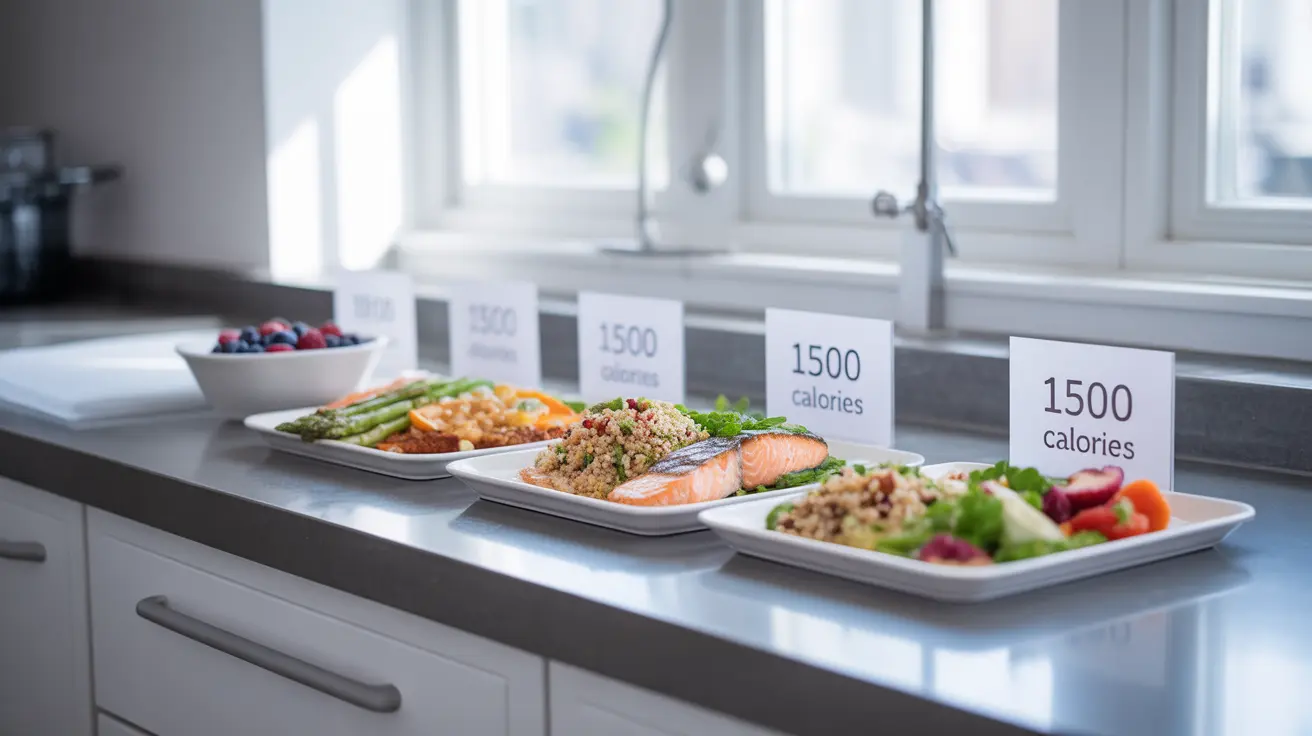A 1500 calorie meal plan represents a structured approach to weight management that can help you achieve your health goals while ensuring proper nutrition. This carefully calculated daily caloric intake provides a reasonable deficit for most adults looking to lose weight gradually and sustainably, while still maintaining enough energy for daily activities.
Understanding how to implement this eating plan effectively, along with its benefits and considerations, can help you make an informed decision about whether it's right for your weight loss journey.
Understanding the Basics of a 1500 Calorie Diet
A 1500 calorie meal plan involves carefully tracking your daily food intake to ensure you consume approximately 1,500 calories throughout the day. This amount typically creates a moderate caloric deficit for most adults, which is essential for weight loss while maintaining adequate nutrition for bodily functions.
Macronutrient Distribution
For optimal nutrition on a 1500 calorie diet, aim for the following macronutrient distribution:
- 45-50% calories from carbohydrates (169-188g)
- 25-30% calories from protein (94-113g)
- 25-30% calories from healthy fats (42-50g)
Planning Your Daily Meals
Successfully following a 1500 calorie meal plan requires careful portion control and strategic meal timing. Here's a suggested meal distribution:
- Breakfast: 300-400 calories
- Morning Snack: 100-150 calories
- Lunch: 400-450 calories
- Afternoon Snack: 100-150 calories
- Dinner: 400-450 calories
Healthy Food Choices for Your Meal Plan
Focus on nutrient-dense foods that provide sustained energy and satisfaction:
Protein Sources
- Lean chicken breast
- Fish and seafood
- Eggs
- Greek yogurt
- Legumes
Complex Carbohydrates
- Whole grain bread
- Brown rice
- Quinoa
- Sweet potatoes
- Oatmeal
Healthy Fats
- Avocados
- Nuts and seeds
- Olive oil
- Fatty fish
- Chia seeds
Making the Plan Work for You
Success with a 1500 calorie meal plan requires preparation and mindful eating. Consider meal prepping, using a food scale, and tracking your intake with a mobile app. Remember that individual needs vary based on factors like age, gender, activity level, and current weight.
Safety Considerations
While 1500 calories per day is generally safe for many adults seeking weight loss, it's important to approach this plan thoughtfully. Certain individuals, including pregnant women, athletes, and those with medical conditions, may require different caloric intakes.
Frequently Asked Questions
What is a 1500 calorie meal plan and how does it support weight loss?
A 1500 calorie meal plan is a structured eating approach that limits daily caloric intake to 1,500 calories. It supports weight loss by creating a caloric deficit while still providing enough nutrients for basic bodily functions. This deficit encourages your body to use stored fat for energy.
How can I balance my meals and snacks to stay within a 1500 calorie daily limit?
Divide your calories across three main meals (300-450 calories each) and two snacks (100-150 calories each). Use a food scale or measuring cups to control portions, and plan meals in advance to ensure balanced nutrition throughout the day.
What are some healthy food choices and examples of a one-day 1500 calorie menu?
Focus on lean proteins, whole grains, fruits, vegetables, and healthy fats. A sample day might include oatmeal with berries for breakfast, a turkey sandwich with vegetables for lunch, Greek yogurt with nuts for snacks, and grilled fish with quinoa and roasted vegetables for dinner.
Is a 1500 calorie diet safe and suitable for everyone, or should I consult a doctor first?
While 1500 calories is generally safe for many adults, it's important to consult with a healthcare provider before starting any new diet plan, especially if you have underlying health conditions, are pregnant, or are very physically active.
How much weight can I expect to lose by following a 1500 calorie meal plan combined with exercise?
With consistent adherence to a 1500 calorie meal plan and regular exercise, you might expect to lose 1-2 pounds per week, though individual results vary. Factors like starting weight, activity level, and metabolism affect weight loss rate.




